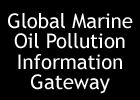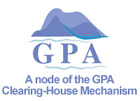UNEP
Regional Seas Action Plan for the Upper South-West Atlantic
In
1980 UNEP's Governing Council decided to launch a programme
for the marine and coastal environment of Argentina, Brazil
and Uruguay. In 1997 UNEP reaffirmed its commitment to the implementation
and strengthening of a programme for this region, focusing on
projects and activities related directly to the Global Programme
of Action for the Protection of the Marine Environment Land-based
Activities (UNEP/GPA). In 1998, in cooperation with the UNEP/GPA
Coordination Office, and the UNEP Regional Office for Latin
America and the Caribbean (ROLAC), a Regional Programme of Action
on Land-based Activities and a regional assessment for the Upper
South-West Atlantic were prepared and endorsed by representatives
of the three Governments. The first steps in implementing the
programme, which covers the coast from Cape São Tomé
in Brazil to the northern Peninsula Valdez in Argentina, are
under way.
|
Treaty
Concerning Rio de la Plata and the Corresponding Maritime Boundary
 The Treaty
Concerning Rio de la Plata and the Corresponding Maritime Boundary
was signed in 1973 by the Governments of the Eastern Republic
of Uruguay and the Argentine Republic. It deals mainly with
territorial issues, navigation, maritime safety etc., but also
includes chapters on water pollution (primarily from oil exploitation
and from discharges of ballast water) and on fishing. For the
implementation of the treaty, there is one joint Administrative
Commission (Comisión
Administradora del Río de la Plata, CARP) and a joint
Technical Commission (Comisión
Técnica Mixta del Frente Marítimo, COFREMAR).
The Treaty
Concerning Rio de la Plata and the Corresponding Maritime Boundary
was signed in 1973 by the Governments of the Eastern Republic
of Uruguay and the Argentine Republic. It deals mainly with
territorial issues, navigation, maritime safety etc., but also
includes chapters on water pollution (primarily from oil exploitation
and from discharges of ballast water) and on fishing. For the
implementation of the treaty, there is one joint Administrative
Commission (Comisión
Administradora del Río de la Plata, CARP) and a joint
Technical Commission (Comisión
Técnica Mixta del Frente Marítimo, COFREMAR).
|
Agreement
on Port State Control in Latin America
The
Latin American Agreement on Port State Control of Vessels (Viña
del Mar Agreement) was signed in 1992. It lays the foundation
for closer cooperation among Maritime Authorities in the region.
It aims at coordinating measures to inspect foreign vessels
calling at regional ports. Actions taken comply with the provisions
established in international treaties and conventions in force
in the field of maritime safety, training and certification
of crewmembers and prevention of pollution from vessels at sea
and in rivers and lakes. |
UNEP
Regional Office for Latin America and the Caribbean (ROLAC)
UNEP
Regional Office for Latin America and the Caribbean (ROLAC)
seeks to further UNEP's global mandate of providing leadership
in and promoting joint efforts for environmental care, and encouraging,
informing and building the capacity of nations and peoples to
improve their lives without endangering that of future generations.
ROLAC also serves as the Secretariat of the Forum
of Environmental Ministers for Latin America and the Caribbean
(Foro
de Ministros de Medio Ambiente de América Latina y el
Caribe). |
UN
Economic Commission for Latin America and the Caribbean (ECLAC)
The
objective of the UN
Economic Commission for Latin America and the Caribbean
(ECLAC) is to contribute to the economic development of Latin
America, coordinate actions directed towards this end, and reinforce
economic relationships among the countries and with the other
nations of the world. ECLAC is also to promote the region's
social development. |
Latin
Petroleum Analytics
The
Latin
Petroleum Analytics (LAPA) — Information Centre for
Latin America's Petroleum Industry — is an independent
research firm providing insights into the Latin American petroleum
industry. LAPA specializes in analyzing energy markets, specifically
the upstream sector of the industry. |
Regional
Association of Oil and Natural Gas Companies in Latin America
and the Caribbean
The
Regional Association
of Oil and Natural Gas Companies in Latin America and the Caribbean
(ARPEL) is formed by more than 25 oil and natural gas companies,
which represent over 90 per cent of the region's upstream and
downstream sectors. ARPEL is "an interactive forum for
exchange of ideas, experiences and knowledge; a forum designed
for a timely identification of issues that may influence the
industry's development." See also ARPEL Environmental Code
of Conduct.
|
Clean
Caribbean Cooperative
In
1977, nine oil companies operating in the Caribbean formed the
Clean
Caribbean Cooperative (CCC) with the objective of "enhancing
the capability to promptly and efficiently respond to marine
oil spills in the region". Since then the CCC Membership
has grown to include most of the major international oil companies
and oil related facilities in the Caribbean, Latin America and
South America region. The CCC mission is develop and maintain
immediately accessible oil spill response resources and support
for Members through a ready equipment stockpile and a trained
contractor network; and promote training, coordination and logistics
planning with industry and governments in the Area of Interest
(which extends
from the shoreline 100 miles seaward. |
Amzon
Watch
Amazon
Watch "works with indigenous and environmental organizations
in the Amazon Basin to defend the environment and advance indigenous
peoples' rights in the face of large-scale industrial development-oil
and gas pipelines, power lines, roads, and other mega-projects."
Projects mainly concern inland oil exploitation activities,
but also a Bolivian-Brazilian pipeline going to Porto Alegre
on the Brazilian coast. |


